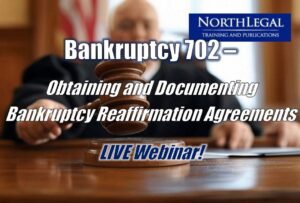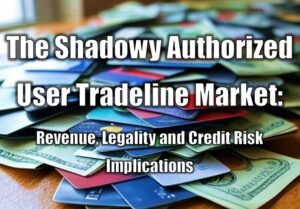
Guest Article
We have been told that the number one complaint lodged against collateral recovery specialists are allegations of missing personal property. I have been involved in providing opinions in numerous law suits involving self-help repossessions and none of them involved such allegations. However, since this is apparently a serious issue I am submitting this article in hopes that it may clarify the importance and accepted methods of the proper handling of personal property contained in a vehicle at the time of repossession.
There is sufficient predominate repossession case law addressing the process and importance of properly inventorying, storing and release or disposal of personal property should the debtor elect not to redeem personal property. In those few states that have a specific law regulating the licensure and oversight of those who service self-help repossession assignments there are specific, statutory requirements for this process.
For those who service repossession assignments in states that do not have specific, statutory requirements for handling personal property following are some predominate repossession case law that addresses this issue.
Perhaps the most notable case law in this areas is Larranga v. Mile High Collection & Recovery Bureau (807 F. Supp. 111 NM 1992). Larranga sued for conversion because there was personal property inside the vehicle at the time of repossession. Since the contract signed by the Plaintiff did not include a clause consenting to the taking of personal property in the vehicle at the time of repossession, the court affirmed the Plaintiff’s claim. Now creditors have included a “consent” clause in their contracts.
GMAC v. Vincent (523 83 2d 539 183 OK 547 Sup. Ct. 1938) was an important case in that it a claim of conversion was denied by the court because of the “consent” clause which stated, “Seller may take possession of any other property in the above described motor vehicle at the time of repossession and hold same temporarily for purchaser without liability on the part of the seller.” The court went on to there would not be a wrongful taking of the personal property, but the failure of the Defendants to account to Plaintiff for the property upon his demand therefore would constitute an unlawful exercise of dominion over the same. Accordingly, Defendants would be liable to Plaintiff for the actual case value of the personal property which was in the automobile at the time of the taking and for which Defendants failed to account to Plaintiff.
Another important case regarding the handling of personal property is Nadalin v. Automobile Recovery Bureau, Inc. (169 F. 3d 1084 U.S. Court of Appeals, Seventh Circuit IL 1999). This case involved a charge for personal property that was in the Nadalin vehicle at the time of repossession. The repossession agent inventoried and stored the personal property then contacted Nadalin and advised him there would be a $25.00 charge to redeem the property. Nadalin sued, alleging a violation of the FDCPA and asserting that this was an effort to “claim and seize additional collateral for the loan.” The court denied the claim stating, in part, “A secured creditor who repossess the collateral for his loan is entitled to the recovery of reasonable expenses of collecting the loan, which might include expenses of preserving and returning the incidental personal property of the debtor.” The court went on to say that the Security Agreement between the creditor and debtor authorized (consent clause) the creditor to take “any goods found in the vehicle not covered by the Agreement at the time of repossession, provided that the lender makes reasonable efforts to return them to the debtor after repossession.”
These cases make it clear that:
- The contract between the creditor and the debtor should contain a consent clause. This is a responsibility of the creditor.
- The personal property contained in the vehicle at the time of repossession should be immediately inventoried (preferably by the recovery agent who performed the repossession) showing date and time of the inventory and signed by the person who completed the inventory.
- The personal property must be protected.
- The debtor must be notified in a timely manner and method of redeeming the personal property and given a reasonable time period for redemption.
- A “reasonable” fee may be charged to the debtor for this service.
As you can see, predominate case law in this area is clear and easy to understand. The C.A.R.S. National Certification Program contains a very specific procedure for the inventory and storage of personal property, timely notification to the debtor, redemption process including reasonable charges and a reasonable time the personal property will be held, and the disposal of such property should the debtor elect not to redeem. The C.A.R.S. process follows Chapter 493, Florida Statute and has been tested in both state and federal court.
RISC is an organization dedicated to providing services specific to the collateral recovery industry, including the professional training and certification of collateral recovery specialists. RISC Educational Systems is our State licensed (Florida) training subsidiary that specializes in the development of professional certification curriculums, continuing education, Industry Standards and compliance training, monitoring and reporting. . RISC is an advocate of all professional practitioners within the collateral recovery industry.
Joe Taylor
Vice President
Director of Education
RISC











I would caution all repossessors who service repossession assignments in states that do not have specific statutory requirements for handling personal property from taking any actions without a comprehensive review of the cases offered in support of the conclusions reached.
“Perhaps the most notable case law in this areas is Larranga v. Mile High Collection & Recovery Bureau (807 F. Supp. 111 NM 1992). Larranga sued for conversion because there was personal property inside the vehicle at the time of repossession.”
The Larranga case is not the most notable personal property conversion case even within the borders of New Mexico. The court in the Larranga case based its decision on Newman v. Basin Motor Co., 98 N.M. 39, 42, 644 P.2d 553 (Ct. App. 1982) which predated Larranga by ten years. In addition, Newman is important to the industry without regard to the state where you operate. The value of Larranga is found in the cases cited regarding unsecured personal property in Arkansas, Oklahoma, and Texas. If you live in one of these three states the cases cited would be beneficial to what the law is in your state.
“GMAC v. Vincent (523 83 2d 539 183 OK 547 Sup. Ct. 1938) was an important case in that it was a claim of conversion which was denied by the court because of the “consent” clause in the contract which stated, “Seller may take possession of any other property in the above described motor vehicle at the time of repossession and hold same temporarily for purchaser without liability on the part of the seller.”
The Vincent Court in fact found that the personal property had been converted but no punitive damages should be allowed because of the authorizing language of the contract and a lack of evil intent on the part of the defendant. For repossessors operating in Oklahoma I would recommend that you review the Oklahoma Supreme Court case Jones v GMAC 565 P.2d 9 1977 Okla. Supreme Court cited in the Larranga case.
“Another important case regarding the handling of personal property is Nadalin v. Automobile Recovery Bureau, Inc. (169 F. 3d 1084 U.S. Court of Appeals, Seventh Circuit IL 1999). This case involved a charge for personal property that was in the Nadalin vehicle at the time of repossession.”
The entire Nadalin case should be required reading for all repossessors. In the case the court takes great pains in analyzing the pros and cons of charging for personal property. During its analysis the court states “The prevailing rule is that a constructive bailee does not acquire a lien in the bailed good, and thus has no right to the possession of it to compel the bailor to reimburse even the minimum expense incurred in preserving what might be valuable property from loss or destruction” and “the only case that we have found suggests that Illinois courts would not recognize a lien in the circumstances of the present case.” Then the court decided not to decide the issue, “We don’t have to resolve these issues. The Nadalin case did not authorize Illinois repossessors to charge a fee to handle personal property.
Of course today with the passage of the Illinois Recovery Act repossessors have statutory authority to charge a reasonable fee. (see 225 ILCS 422/110 (d)).
RSIG’s state specific law now available online at RSIG Online University (www.rsiguniversity.com) covers the specific requirements of your state along with the relevant case law.
Michael Howk
Joe – Great article.
Lately, starting with Santander, more and more lien holders are trying to insert themselves in to the personal property arena.
The problem with this is that personal property is not part of the security agreement and outside the scope of the repossessed vehicle. For a lien holder to enter in to any aspect of personal property on a repossession would open them up to liability and possibly 3rd party disclosure, with the lien holder becoming the 3rd party. When a lien holder requests or demands an inventory list of personal property, we refuse. Most personal property contains a vehicles license plate. In most States, these plates are jointly owned by the consumer and the State that issued them. No State has ever agreed to release that information to a 3rd party. Why do you think most order for repossession do not include the plate info? It makes no sense to me as to why the lien holders desire to enter in to the personal property area. What if the consumer’s relative or friend was using the vehicle and they had embarrassing or “unmentionables” in the vehicle at the time of repossession. Are we to disclose that to the lien holder? Would we have not just violated the law and become liable for the release of that information?
Now for the real truth of the matter. As more and more lien holders try to squeeze less and less fees out of the recovery agents, the price of personal property by most recovery agents has gone up. Its the old squeeze the balloon from one to make smaller, in turn makes the other end get bigger. I see more and more recovery agents becoming personal property agents.
The Recovery Industry is at a breaking point. More and more agents are going out of business. While that can be attributed to many causes, the fact remains that the industry is dyeing. In my opinion, our only saving grace is to come together and present legislation or regulation that is fair and balanced. If the CFPB wants to protect the consumer, then there needs to be some criteria set for the professional recovery agent. If the criteria is set, then those associated costs must be considered in a MINIMUM rate for those services to be provided.
In 1938, The United States Supreme Court upheld the Fair Labor Standards Act (commonly known as Minimum Wage) In the conclusion, one Justice remarked; ” This act is necessary in order to protect the American laborer from the greed of profiteer.” As we all know, the Federal Minimum Wage sets a minimum standard of pay that can be adjusted upwards by each State based on their unique needs and conditions.
The Recovery Industry needs the same type of legislation or regulation in place to protect the consumer from the profiteers now killing the recovery industry.
Thanks Joe, Great Information, Printed it out for my employees. One other thing, we all have to protect and destroy appropriately any NPPI we find in personal property when it comes to disposal time of unclaimed property.
Thank you Joe!
That was very informative!